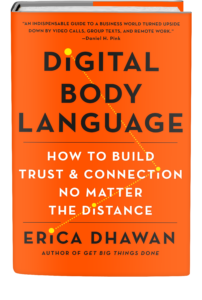We are all familiar with the concept of networking but Scott Gerber says that Super Connectors are people who apply the intention of networking in a way that goes beyond business and personal profit. Whether or not you are a Super Connector has nothing to do with being extroverted or introverted and it has nothing to do with whether you are skilled at particular networking techniques or not. Scott says that Super Connectors are people who approach everything from a generous, particularly human way. If you’ll take the time to listen to the things Scott shares on this episode you won’t hear tips and tricks to improve your ability to connect, you’ll come away challenged to be a better connector at the core of your being.
[Tweet “.@ScottGerber: How #SuperConnectors add #value to every relationship. You can hear everything Scott has to share on this episode of #MastersOfLeadership with @EDhawan #GetBigThingsDone #connecting”]Super Connectors innately look at the world through habitually generous lenses
It’s fun to do a favor for another person. The fulfillment that comes from seeing the look of gratitude and delight in their eyes is indescribable. Scott says that Super Connectors not only like to do favors for others, they are looking for the opportunity to do favors in every interaction. It’s their habitual way of looking at the world and it saturates every interaction they have. In this episode, Scott shares a number of stories that demonstrate the type of actions that flow out of a Super Connector’s desire to be generous. From video introductions to powerful follow-up, you’ll hear many ideas about how you can adopt the attitudes and behaviors of a Super Connector.
Networker VS Connector: What’s the real difference?
The stereotypical idea of a “networker” is a glad-handing, loud, hard-charging individual who is seen pushing their business card into the hands of everyone they meet. The motive behind the networker’s outgoing approach is to drum up business, plain and simple. They embody a “What’s in it for me?” approach. Scott says that a Connector is motivated by an entirely different set of values. He/she is eager to learn about others, discover how they can help them, and connect the dots between them and others in their sphere of influence. A Super Connector believes that helping others is good for everyone involved and it should be done expecting nothing in return. That’s quite a bit different from the typical networker, don’t you think? And the amazing thing is that the results that come from it are better and longer-lasting. Scott has lots more to share on this episode so do yourself the favor of making time to listen.
[Tweet “#Networker VS #Connector: What’s the real difference? You’ll be pleasantly surprised bhow @ScottGerber describes the difference. It’s on this episode of #MastersOfLeadership with @EDhawan #GetBigThingsDone #connecting”]Those who are Super Connectors think and act in a particularly human way
A common question these days is whether or not there’s a certain way people should behave or interact online versus how they interact with others in person. Scott Gerber thinks making those types of distinctions is laughable. He can’t imagine why a person would even want to have two different personas – one in-person and one digital. His best advice in every context is to be yourself and think about adding value to the people around you. In this conversation Scott provides a number of examples of people who do connections right. They approach relationships in an authentic way that Scott calls, “particularly human.” Are you like one of the Super Connectors Scott describes? Find out on this episode.
The number one reason people fail in establishing long-lasting connections
Toward the end of my conversation with Scott, he spoke about the importance of follow up. What he means by the term is the act of intentionally reconnecting with someone you’ve met or been introduced to. He says that the number one reason people fail in establishing long-lasting, beneficial relationships is that they don’t follow up. If it’s that important, it makes sense to learn how to do it right, doesn’t it? In this episode Scott shares some of the practices Super Connectors employ to follow up diligently and effectively and he points out how you can learn more from a particular chapter in his book, “Super Connectors,” so be sure you listen to learn how to establish your own follow up habits.
[Tweet “Do you know the number one reason people fail in establishing long-lasting @connections? @ScottGerber shares the answer on this episode of #MastersOfLeadership with @EDhawan #GetBigThingsDone #connecting”]Outline of This Episode
- [1:35] Scott’s definition of Leadership
- [2:20] Reshaping the definition of connecting and networking
- [5:02] An explanation of what Super Connectors are really like
- [9:40] Online relationships from a Super Connector’s perspective
- [15:51] Corporate connectors compared to entrepreneurial connectors
- [20:06] Why super connecting can be done in everyday things by everyday people
- [22:10] The unique challenges Super Connector’s face, and Scott’s advice to them
- [27:09] A very tactical approach to checking yourself as a connector
- [30:08] The number one reason people fail at relationships: They fail to follow up
Resources & People Mentioned
- The Community Company – Scott’s company
- BOOK: Superconnector
- Scott on Twitter: @ScottGerber
- Ryan Paugh (Scott’s partner)
- Steve Sims
- Adam Grant – author of Give And Take
- Adam Rifkin, founder of 106 Miles and Panda Whale
Connect with Erica
Erica@cotentialgroup.com
